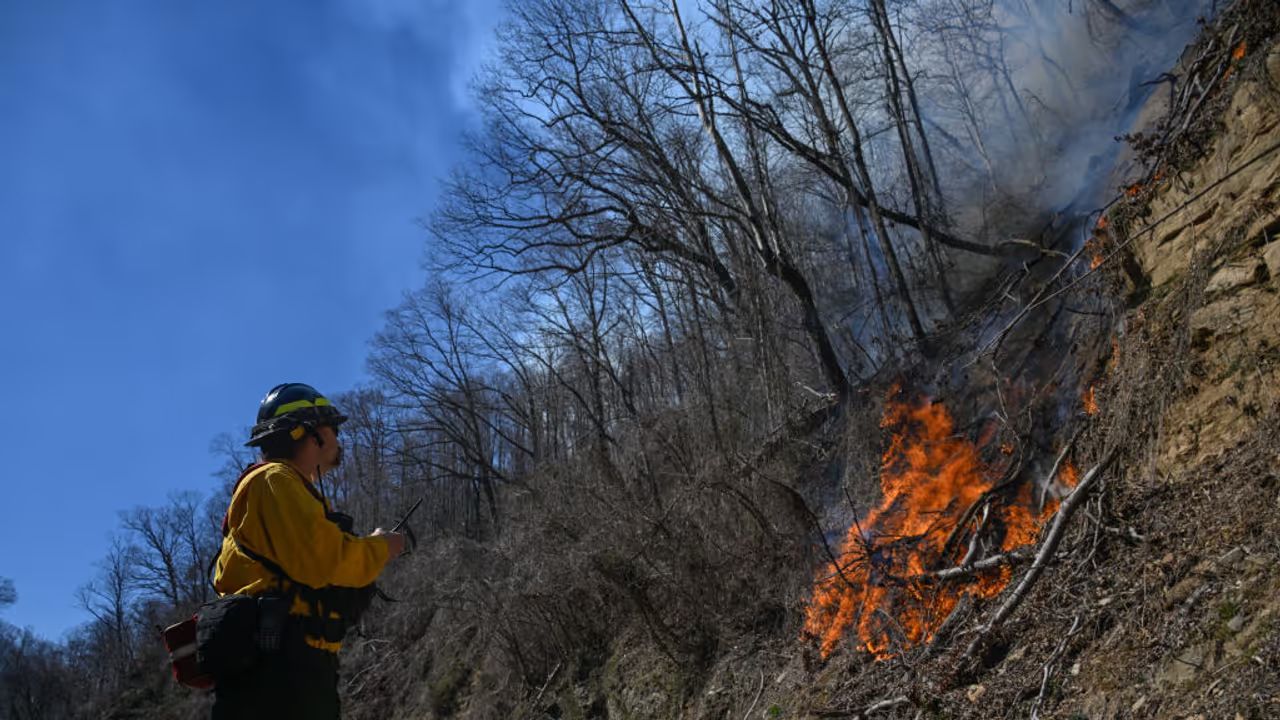The devastating wildfires that ravaged Los Angeles in January, claiming at least 28 lives and reducing over 10,000 homes to ashes, may be just the beginning of a far graver crisis.

The devastating wildfires that ravaged Los Angeles in January, claiming at least 28 lives and reducing over 10,000 homes to ashes, may be just the beginning of a far graver crisis.
A chilling new study warns that fire disasters in cities are poised to escalate dramatically in the coming decades, fueled by the relentless march of climate change.
Researchers from the University of Science and Technology of China predict a sharp rise in urban fires across 2,847 cities spanning 20 countries over the next 75 years. Their projections paint a grim picture—if greenhouse gas emissions continue unchecked, the world could witness a 22.2% surge in outdoor fires in urban areas by 2100.
The consequences could be catastrophic, with the study estimating 335,000 fire-related deaths and 1.1 million fire injuries globally.
"We find that global warming could lead to an unexpectedly high volume of fire casualties," the researchers cautioned in their findings, published in Nature Cities.
Currently, fires claim around 50,000 lives and cause 170,000 injuries worldwide annually. However, as global temperatures rise, these figures are expected to soar.
Urban infernos: A new reality?
The study highlights a critical oversight in fire impact research—while much attention has been given to wildfires consuming forests, urban fires, which often result in higher casualties, remain largely underexplored.
"The current impact analyses have concentrated on vegetation fires rather than urban fires, even though they typically cause more direct fire casualties," the researchers noted.
To map the threat, the team compiled a global fire database using fire department records from 2011-2020. Incidents were classified into three categories: building fires, vehicle fires, and outdoor fires. Their analysis revealed a worrying trend under a high-emissions scenario:
Outdoor fires could spike by 22.2%
Vehicle fires may increase by 11.6%
Building fires, however, might decrease by 4.6%
UK and New Zealand among worst-hit nations
For some countries, the forecast is particularly alarming. The UK and New Zealand are expected to face fire surges exceeding 40%.
In Britain alone, by the end of the century: Building fires could rise by 10%, Vehicle fires may surge by nearly 15%, Outdoor fires could escalate by over 20%
With such dire projections, the researchers stress the urgent need for climate-resilient strategies.
"This study can serve as a starting point for developing climate-resilient strategies, such as updating fire standards, mitigating human impacts, ameliorating fuel management, and enhancing vehicles' reliability," they emphasized.
